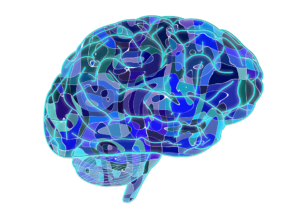
Up to 75% of Americans are not meeting their recommended intake of magnesium.
Magnesium is needed for more than 300 biochemical reactions in the body. It is the 4th most abundant mineral in the body and 2nd most common intracellular cation (positively charged ion) a.k.a electrolyte. It helps to maintain…
- Nerve and muscle function
- Supports a healthy immune system
- Keeps the heart beat steady
- Helps regulate blood glucose levels
- Aids in the production of energy and protein
- And more
Magnesium & Vitamin D:
Optimal magnesium levels are also necessary for activation of vitamin D and for vitamin D conversion from sun exposure and/or oral supplement into calcitriol. Vitamin D is actually a hormone rather than a vitamin and calcitriol is the active hormone or form of vitamin D, which helps to increase the amount of calcium absorbed in the gut. Calcium promotes bone growth, regulates the expansion and contraction of the blood vessels, and more.
- Studies show that optimal amounts of magnesium may lower risk of vitamin D deficiency
- Magnesium may reduce dependency on vitamin D supplements
- Studies show people with high magnesium intake had a lower mortality risk from cardiovascular disease and bowel cancer
- Low magnesium will shut down vitamin D synthesis and metabolism pathway
Magnesium Helps Migraine Sufferers:
Statistics show that migraine is 3rd most prevalent illness in world – affecting est. 1 billion people. Magnesium deficiency has been found to worsen migraine conditions. You might be suffering from migraines due to lack of magnesium if you experience symptoms such as…
- Throbbing, piercing, “burning” pain typical on one side of the head
- Nausea
- Vision issues
- Dizziness
- Numbness in face and/or extremities
- Sensitivity to light, sound, smell, and touch
Unfortunately, the root cause of what causes a migraine is still unknown. We do know that magnesium has a superior ability to cross the blood-brain barrier and can keep migraine symptoms from worsening if taken during the onset. In a placebo-controlled study it was shown that taking 600 mg of magnesium reduced migraine frequency by almost 42%.
Magnesium as an Antidepressant Solution:
Despite the widespread belief that Western countries have the best-fed people, there are serious dietary deficiencies such as magnesium deficiency and this is mainly due to processing of our foods. We are absolutely sure that magnesium plays a vital role in overall brain function and mood regulation. Studies have shown that especially younger people with very low magnesium intake show more symptoms of depression. This mineral acts as catalyst for mood-regulating neurotransmitters (like serotonin).
Magnesium as a solution to depression has little to no side affects one would experience with an SSRI, but shows comparable results. Magnesium supplementation improved mild to moderate depression in adults in one study – benefits shown within 2 weeks of treatments.
*NOTE – if a person has kidney issues/disease and cannot rid excess amounts of magnesium this could lead to hypermagnesemia. Adults should take no more than around 350 mg daily unless otherwise advised by their PCP. See Study Here!
Magnesium and Brain Plasticity:
On top of everything else, magnesium is a critical element in the activation of nerve channels involved in synaptic plasticity. Memory impairment occurs when synapses between brain cells diminish. This mineral is critical for psychological events that are fundamental to processes of learning and memory. It has a unique ability to permeate the brain and enhance receptors.
2010 study (animals) published in journal “Neuron” found that magnesium threonate enhanced…
- Learning abilities
- Working memory
- And short & long-term memory
Magnesium Deficiency Symptoms:
- Muscle tweaks and craps
- Signs of depression or complete lack of emotion
- Osteoporosis
- Fatigue and muscle weakness
- High blood pressure
- Asthma
- Irregular heartbeat
Are you getting enough magnesium in your diet?
